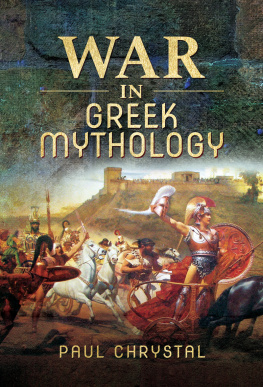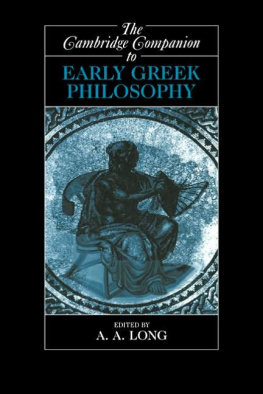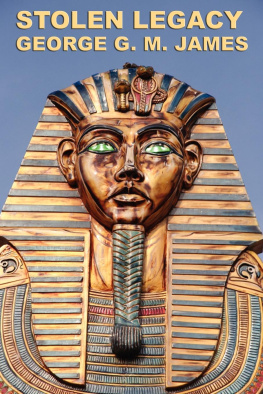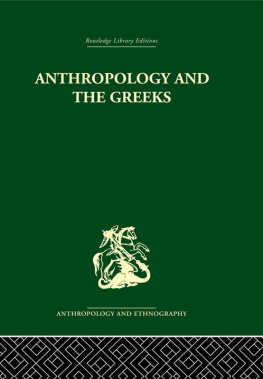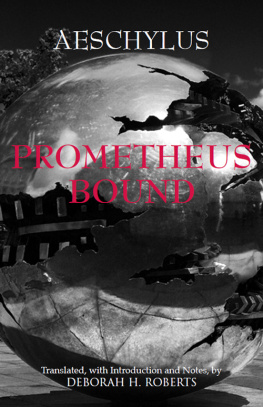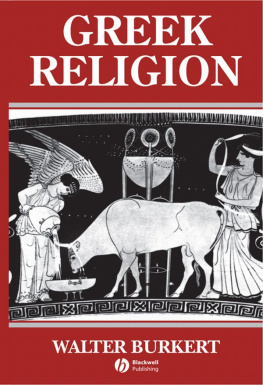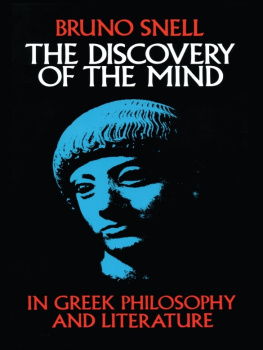First published in Great Britain in 1961 by George Allen & Unwin Ltd.
This edition first published in 2022
by Routledge
2 Park Square, Milton Park, Abingdon, Oxon OX14 4RN
and by Routledge
605 Third Avenue, New York, NY 10158
Routledge is an imprint of the Taylor & Francis Group, an informa business
1960 Moses Hadas
All rights reserved. No part of this book may be reprinted or reproduced or utilised in any form or by any electronic, mechanical, or other means, now known or hereafter invented, including photocopying and recording, or in any information storage or retrieval system, without permission in writing from the publishers.
Trademark notice: Product or corporate names may be trademarks or registered trademarks, and are used only for identification and explanation without intent to infringe.
British Library Cataloguing in Publication Data
A catalogue record for this book is available from the British Library
ISBN: 978-1-03-215357-5 (Set)
ISBN: 978-1-00-325786-8 (Set) (ebk)
ISBN: 978-1-03-218703-7 (Volume 6) (hbk)
ISBN: 978-1-03-218989-5 (Volume 6) (pbk)
ISBN: 978-1-00-325723-3 (Volume 6) (ebk)
DOI: 10.4324/9781003257233
Publishers Note
The publisher has gone to great lengths to ensure the quality of this reprint but points out that some imperfections in the original copies may be apparent.
Disclaimer
The publisher has made every effort to trace copyright holders and would welcome correspondence from those they have been unable to trace.
First Published in Great Britain in 1961
This book is copyright under the Berne Convention. Apart from any fair dealing for the purpose of private study, research, criticism or review, as permitted under the Copyright Act, 1956, no portion may be reproduced by any process without written permission. Enquiry should be made to the publisher.
Moses Hadas 1960
Printed in Great Britain
by Bradford & Dickens
London, W.C.1
CONTENTS
world perspectives : What This Series Means
II Who were the Greeks?
III The Heroic Code
IV The Supernatural
V The Tragic View
VI Man the Measure
VII The Cult of Hellenism
VIII Channels to Europe
IX Humanist Revival
X The Return: Machiavelli and Spinoza
WORLD PERSPECTIVES What this Series Means
It is the thesis of World Perspectives that man is in the process of developing a new consciousness which, in spite of his apparent spiritual and moral captivity, can eventually lift the human race above and beyond the fear, ignorance, and isolation which beset it today. It is to this nascent consciousness, to this concept of man born out of a universe perceived through a fresh vision of reality, that World Perspectives is dedicated.
Only those spiritual and intellectual leaders of our epoch who have a paternity in this extension of mans horizons are invited to participate in this Series: those who are aware of the truth that beyond the divisiveness among men there exists a primordial unitive power since we are all bound together by a common humanity more fundamental than any unity of dogma; those who recognize that the centrifugal force which has scattered and atomized mankind must be replaced by an integrating structure and process capable of bestowing meaning and purpose on existence; those who realize that science itself, when not inhibited by the limitations of its own methodology, when chastened and humbled, commits man to an indeterminate range of yet undreamed consequences that may flow from it.
This Series endeavors to point to a reality of which scientific theory has revealed only one aspect. It is the commitment to this reality that lends universal intent to a scientists most original and solitary thought. By acknowledging this frankly we shall restore science to the great family of human aspirations by which men hope to fulfill themselves in the world community as thinking and sentient beings. For our problem is to discover a principle of differentiation and yet relationship lucid enough to justify and to purify scientific, philosophic and all other knowledge, both discursive and intuitive, by accepting their interdependence. This is the crisis in consciousness made articulate through the crisis in science. This is the new awakening.
Each volume presents the thought and belief of its author and points to the way in which religion, philosophy, art, science, economics, politics and history may constitute that form of human activity which takes the fullest and most precise account of variousness, possibility, complexity and difficulty. Thus World Perspectives endeavors to define that ecumenical power of the mind and heart which enables man through his mysterious greatness to re-create his life.
This Series is committed to a re-examination of all those sides of human endeavor which the specialist was taught to believe he could safely leave aside. It interprets present and past events impinging on human life in our growing World Age and envisages what man may yet attain when summoned by an unbending inner necessity to the quest of what is most exalted in him. Its purpose is to offer new vistas in terms of world and human development while refusing to betray the intimate correlation between universality and individuality, dynamics and form, freedom and destiny. Each author deals with the increasing realization that spirit and nature are not separate and apart; that intuition and reason must regain their importance as the means of perceiving and fusing inner being with outer reality.
World Perspectives endeavors to show that the conception of wholeness, unity, organism is a higher and more concrete conception than that of matter and energy. Thus an enlarged meaning of life, of biology, not as it is revealed in the test tube of the laboratory but as it is experienced within the organism of life itself, is attempted in this Series. For the principle of life consists in the tension which connects spirit with the realm of matter. The element of life is dominant in the very texture of nature, thus rendering life, biology, a trans-empirical science. The laws of life have their origin beyond their mere physical manifestations and compel us to consider their spiritual source. In fact, the widening of the conceptual framework has not only served to restore order within the respective branches of knowledge, but has also disclosed analogies in mans position regarding the analysis and synthesis of experience in apparently separated domains of knowledge suggesting the possibility of an ever more embracing objective description of the meaning of life.
Knowledge, it is shown in these books, no longer consists in a manipulation of man and nature as opposite forces, nor in the reduction of data to mere statistical order, but is a means of liberating mankind from the destructive power of fear, pointing the way toward the goal of the rehabilitation of the human will and the rebirth of faith and confidence in the human person. The works published also endeavor to reveal that the cry for patterns, systems and authorities is growing less insistent as the desire grows stronger in both East and West for the recovery of a dignity, integrity and self-realization which are the inalienable rights of man who may now guide change by means of conscious purpose in the light of rational experience.




